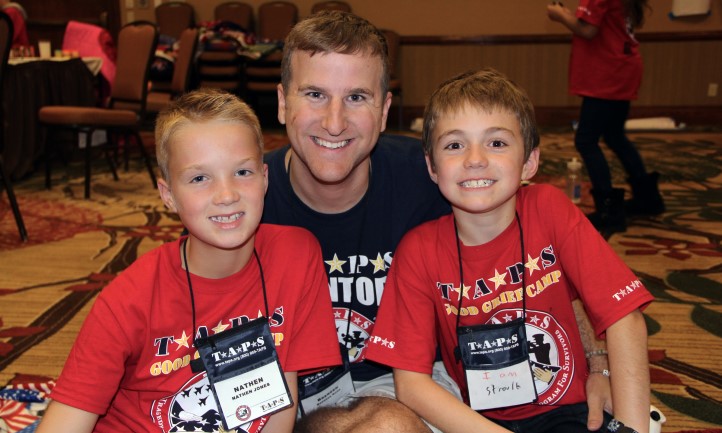Talking to Children About Suicide
Author: Kim Ruocco
One of the most challenging issues following a death by suicide is what and how to tell children. Widespread inaccurate information compounds this already challenging issue for those caring for grieving children. When a loved one dies by suicide, it could take some time to trust your instincts and follow your heart again, so credible information and trustworthy guidance is critical.

Children are egocentric, meaning they believe that the world revolves around them and everything that happens in it is related to them. This is important to remember when it comes to suicide. If something doesn’t make sense, or if a child hears information that doesn’t match what they’ve been told, they may make it about themselves or make up and imagine details.
They might think a suicide is their fault, or tell themselves things like, “If I was only good enough, he would have stayed,” or “I should have told her I loved her.”
When children are told the truth, they are better able to grieve the death in healthy, adaptive ways and understand that it wasn’t their fault. Telling children the truth, in a developmentally appropriate way, builds trust and strengthens the bond between parent, caregiver or other adults-- creating an environment where the child is more likely to talk about his or her grief journey openly.
Children who have lost a loved one to suicide can be at increased risk themselves. There are many reasons for this, including the increased possibility of inherited risk factors, as well as the fact that suicide has now been introduced into their life as an alternative to solve problems and/or end pain.
Discussions about suicide, mental health and the associated risk factors will significantly decrease the risk in child survivors. Among many things, it provides an opportunity to talk about help-seeking behaviors, coping skills and the need for self care.
Sharing age-appropriate information about the contributing factors that led to the suicide of their loved one can also help a child cope with the nature of their loss by decreasing feelings of guilt and shame, while increasing the child’s understanding of the changes happening within their family.
As adults, it can be hard to talk about suicide, so it is understandable that it can be even more difficult for children to discuss. Every child grieves differently and has a different level of comfort when it comes to talking to others about their loss. It is vital that we help children find the words to use if they want to talk about the death of their loved one, but also give them the permission and language needed to express if they don’t want to talk about it.
For example, one child may feel comfortable saying, “My dad died by suicide because he suffered with post traumatic stress after war,” while another child may feel more comfortable saying, “My mom died from depression,” and a third child may prefer to say, “I really don’t want to talk about it right now.” It is important for parents, caregivers, counselors and teachers to help these children find the right words and practice using them.
It takes a team to help children heal after suicide loss. This team can include parents, grandparents, adult siblings, aunts and uncles, coaches, teachers, counselors and mentors. It is important that the team of adults talk to one another to understand the individual needs of the child and join together with the family to best support a healthy grief journey. The more the team communicates with one another about the child and directly with the child, the more likely that child will feel safe and supported.
Rebuilding a family after a suicide can be a challenging endeavor, but it is possible to create a foundation that leads to hope, healing and a new level of understanding and connection. A loving foundation created with honesty and trust can better provide a safe place for a child to heal. It also sets the stage for when the child grows into other developmental stages and faces future life challenges.
For more information about healing after suicide loss, please ask about the TAPS Quick Series resource on the topic or call TAPS 24/7 at 800.959.TAPS (8277). Need more support for your family after a suicide loss? Plan to attend the National Military Suicide Survivor Seminar this October in Phoenix. Register at taps.org/nmsss.
By Kim Ruocco, MSW: Kim is TAPS Chief External Relations Officer for Suicide Prevention and Postvention, partnering with private and public organizations to decrease suicide and increase postvention care for all those grieving the suicide of a loved one. She is the surviving spouse of Marine Maj. John Ruocco, who died by suicide in 2005.
